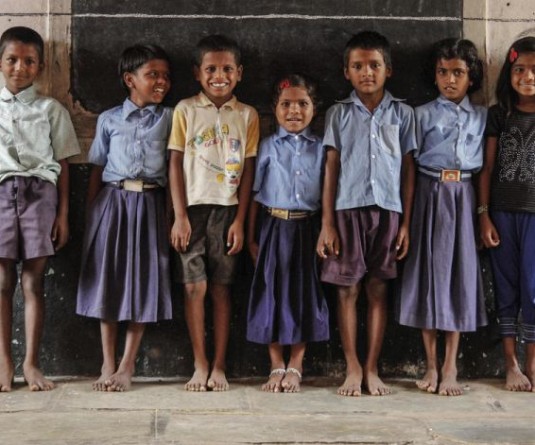
Medonuo Pienyu
HoD., Dept. of Sociology St. Joseph’s College, Jakhama
We all are aware of the maxim, “the youth of today are the future of tomorrow”. The young people have the power to change the world. They are the driving force to mould the nation for a better tomorrow. Much has been said and discussed about this, and in fact many organizations, NGOs, associations and institutions have been consistently working to empower the youth for development of the nation. But above all, are we psychologically and emotionally primed to witness changes through the hands of the youth? Are we open to listen to the voices of the youth? Are we looking forward to view the world through their eyes?
We are living in a world where social media revolution is unfolding before our eyes. Today, the young people are more connected to social networks and this involvement with the social networks is progressively increasing. With the changing society, we cannot refute the fact that the younger generation is also straying and falling prey to social evils. This trend in fact is creating Ephebiphobia among the adults and the older generations. And that such fear may in fact be perilous to the present youth who are addressed to as the future of our society.
“Ephebiphobia” is derived from the Greek word ‘ephebos’, which means youth or adolescent, and ‘phobos’ means fear or phobia. Ephebiphobia thus means the fear of the youth. This fear of the youth is not a new phenomenon. It did exist since time immemorial, more so in the western societies. Machiavelli is said to have sensed that this ‘fear of the youth’ kept the city of Florence from keeping a standing army (Trexler, 1980:390). It also acted as a driving factor behind policies to combat so-called ‘youth violence’ makers (Mike, 2001). Plato, in the 4th Century BC, did remark: “What is happening to our young people? They disrespect their elders, they disobey their parents. They ignore the law. They riot in streets, inflamed with wild notions. Their morals are decaying. What is to become of them”. And Peter remarked in AD 1274, “….for the girls, they are forward, immodest and unlady like in speech, behaviour and dress”. Many still say, young people seem no longer respecting their parents and teachers. They are rude and edgy. They have no self-control and their morals are decaying, and so on and so forth. Tanya Byron, a psychologist and TV presenter remarked that, adults are suffering from “Ephebiphobia”. This fear is in fact, very much ingrained in the adult psyche. Parents are afraid of sending their sons and daughters away from their sight, educators are sensing it more than anyone else; policy makers, religious leaders, administrators are enforcing new rules to combat this phenomena. Employers are reluctant to hire them for jobs. Social podium and public places are restricted for them. Today, youth are living in an increasingly risk-averse culture. This generation continues to grow rapidly and the challenges before them are ever more daunting. Youth’s behaviour is the reason for many social evils but it is not reasonable to generalize the follies of the little on the wider group.
There is a need to understand the younger population and the tribulations/challenges faced by them. We must comprehend that the younger generation has never lived in a world without SMS and DVD’s, without computer or internet or mobile phones.
Everything (news, fashion, music, videos, etc.) is easily obtainable at their door step. In today's environment, the education that is provided to them gives to them a better chance of employment, better lifestyle, power and status. This commodification of knowledge as intellectual property has occurred particularly with regard to connecting the intellectual work of universities with community, business, and government interests and priorities while such a tendency also creates institutional winners and losers. Such is the world of our youth today.
Some of the problems they are facing today are not new phenomena but are now coming to the forefront. Other issues are new trends, as society is adapting to the faster pace of life. To name some of the issues of the youth are:
1. Absence of parental guidance most probably due to single parent households, parents not spending quality time with their young ones, divorce, extra-marital affairs, etc., have created a sense of fear for the youth for marriage. Today we find many youth running away from marriage or any kind of social commitment.
2. Youth are literally moving around intoxicated daze, drunken driving, poor grades and attendance, anti-social and violent behaviour.
3. Growing up too fast. Today youth do not enjoy being young. TV series, music, internet, videos, etc. have serious influences over them. The concept of childhood or teenage is literally being wiped out.
4. In the early process of socialization, children are taught what they wanted in life is possible through earning. The importance of money is felt by them at an early stage of their life.
5. Youth are spending more time on TV/Computer screen or mobile rather than any physical or outdoor activity, which makes them even more sensitive and fragile. They remain more in the virtual world and cannot face the harsh realities of life.
6. Youth today have multiple degrees but still cannot find work that pays enough to sustain a decent lifestyle. Failure in the job market and unemployment often trigger anger and frustration among them.
7. Young People have strived to bring positive social change in the world, be it Mandela or Malala. The present generation has both good qualities and some deficiencies in them. The emotions, openness, understandings and other noble traits and qualities of the younger generation are quite different from the past.
If the present generation is not accepted and their issues are not addressed, then it is impossible to think that the future generation will ever change for better. The method that is being applied presently for this generation is that of making faces at them, criticizing them or slandering them. Continuously they are loaded with so many dos and don’ts, sometimes to the extent of bombarding “the Book of Rules” by their parents, relatives, teachers, elders and senior citizens every day. They are taught right from the beginning to sense the world through the eyes of the older generation. If they go against it or deviate from it they are often criticized or are considered to be spoiled children who have no respect for people and their surroundings. The pressure and challenges the youth faces at every nook and corner is alarming. In a world full of social, political and economic challenges that face our youth today, it requires new and diverse perspective to understand the youth of today. We must therefore, understand that the younger generation needs the space and the time to experience life in their own way. Trust and confidence is what they need in the work assigned to them. Most of the time they are not hired for job because they lack experiences but if every institution choose only those who have experience, how will they ever get experience when no company or institution gives them a chance? The youth today are more creative and talented than before, they understand problems more than before. The challenges and the society they are living in is not like before, what they really want is not criticism or humiliation. The youth need understanding parents, elders, teachers and senior citizens who not only teach or advise them about the “Book of Rules” but also on the “Book of Living” which perhaps, speaks more on counseling and how to live life in a fruitful, healthy ways. More openness to issues such as sex education, violence, crimes should be discussed openly with them. Even while narrating ones experiences freedom of thoughts should be given to them. Let them decide what is good or bad for them.





